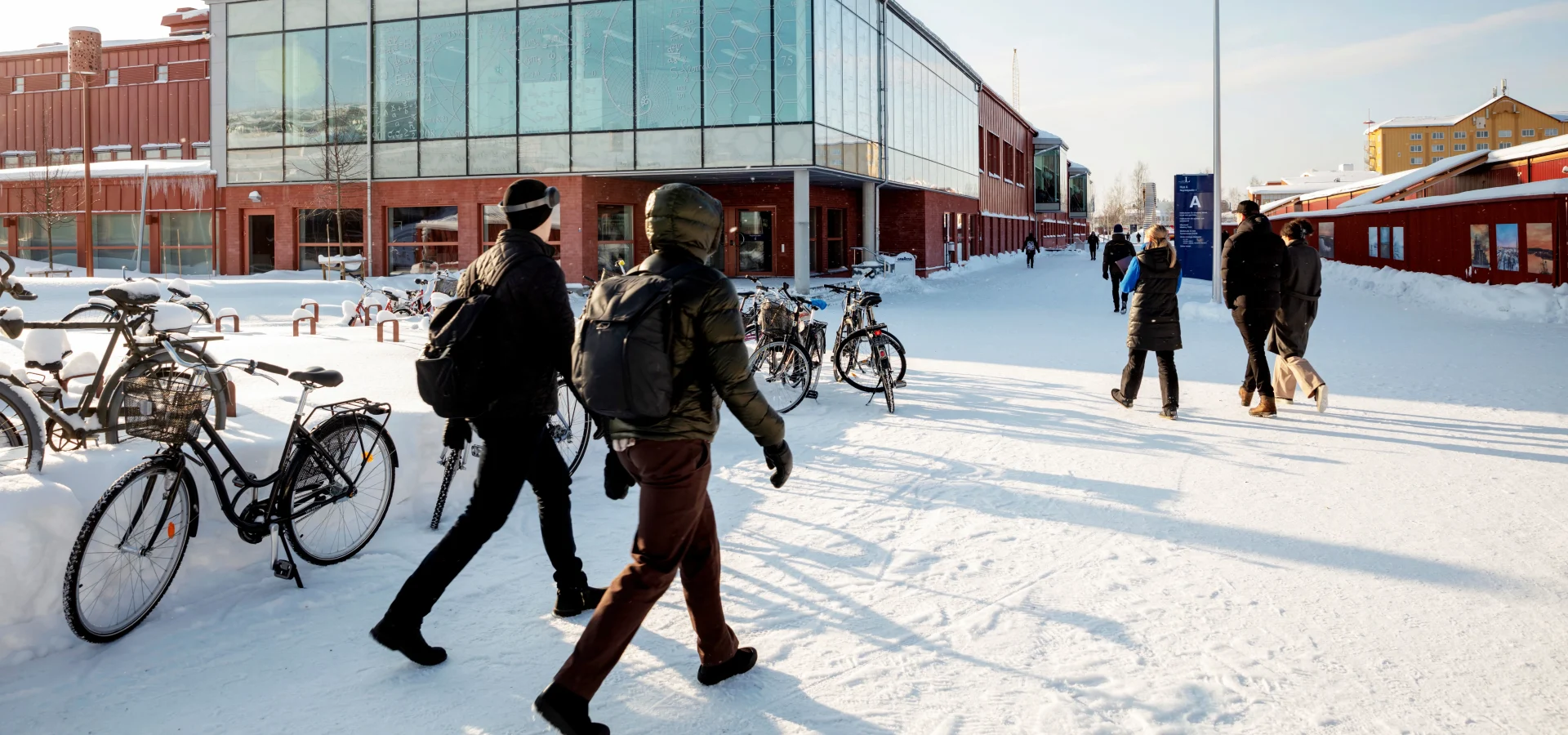
Type of Employment Part-time
Job position PhD student
Work model On location
Application due date 11 May 2025
PhD student in signal processing
Luleå, Sverige
Type of Employment Part-time
Job position PhD student
Work model On location
Application due date 11 May 2025
Are you the one?
Luleå University of Technology is growing rapidly with world-leading expertise in several research areas. We shape the future through innovative education and groundbreaking research results, and based on the Arctic region, we create global social benefits. Our scientific and artistic research and education are conducted in close collaboration with international, national and regional companies, public actors and leading universities. Luleå University of Technology has a total turnover of almost SEK 2.1 billion per year. We are currently 1,900 employees and have 18,700 students.
In the coming years, billions of kronor will be invested in Norrbotten and Västerbotten in major projects aimed at a more sustainable society nationally as well as globally. Luleå University of Technology is involved in several of these highly topical research projects and the social transformation that follows. We have a wide range of programs to match the skills that are in demand. We hope that you will help us build the sustainable companies and societies of the future.
The Department of Space and Systems Engineering at Luleå University of Technology (LTU) is looking for a PhD student who wants to conduct research in the area of next-generation space and ground-based wireless communication and sensor technologies together with the signal processing group. We are looking for ambitious and creative individuals with a Master's degree and strong analytical skills who want to contribute to cutting-edge research in this area.
The work will be conducted within the interdisciplinary research center SMART 6GSAT in collaboration with the Royal Institute of Technology (KTH), Research Institutes of Sweden (RISE), and several companies, authorities, organizations and regions.
Subject description
The subject covers signal processing with a focus on the development and optimization of algorithms for processing one- and multi-dimensional signals that are closely related to applications and applied research.
Project description
In the sixth generation (6G) wireless system, low earth orbit (LEO) satellites will be integrated with ground-based systems to achieve true global coverage. This will enable low-latency broadband and IoT services even in sparsely populated areas and hard-to-reach places, with high energy efficiency.
To achieve this and avoid interference, signals from satellites, ground stations, base stations and a large number of users must be integrated in an energy-efficient way, using techniques such as massive and distributed MIMO and reconfigurable intelligent surfaces (RIS). In addition to traditional communication services, objectives such as integrated sensing (ISAC) and positioning are also important for 6G. The research will be mainly theoretical, but LTU has test beds for possible experiments.
The main objective of the project is to investigate basic principles and methods for energy-efficient communication, localization and sensing using wireless signals between LEO satellites and the ground, supported by technologies such as MIMO and RIS.
The research is fully funded and will be conducted at the Division of Signal and Systems at LTU under the supervision of Associate Professor Rickard Nilsson, LTU, and co-supervision of Professor Emil Björnson, KTH, and possibly professors from the Indian Institute of Technology (IIT). The results will be published in top scientific conferences and journals, preparing you for a future in both academia and industry.
Duties and responsibilities
A PhD position involves both theoretical and practical work. As a PhD student, you will be trained in scientific work through the publication of scientific papers in journals and at national and international conferences. You will also take compulsory and optional doctoral courses. In addition, you may have the opportunity to try out the role of teacher. As a researcher, you will work as a neutral party in many contexts, providing a great opportunity to learn how to run challenging development projects.
Qualifications
To be eligible for the PhD program, a Master's degree or equivalent in signal processing, wireless communications or mathematics is required.
The research will focus on signals in the physical layer, but may also include aspects of media access control and network layers. The methodology is expected to include signal processing, communication theory, mathematics, wave propagation, electromagnetics, optimization, machine learning and network engineering.
Proven experience in these areas, especially in the form of publications, is an advantage. You should have an excellent command of English, both spoken and written.
For further information on specific doctoral training, see
curricula for doctoral studies in the Faculty of Engineering
Information on the PhD program
Employment as a doctoral student is limited to 4 years, teaching and other departmental duties can be added up to 20% of full time. Place of employment: Luleå. Intended access after agreement.
For further information, please contact Associate Professor Rickard Nilsson, 0920-49 1594, rickard.o.nilsson@ltu.se
Trade union representative:
SACO-S Diana Chroneer, 0920-49 2037 diana.chroneer@ltu.se
OFR-S Marika Vesterberg, 0920-49 1721 marika.vesterberg@ltu.se
How to apply
We prefer that you apply for the position via the application button below where you attach a cover letter, CV/resume and copies of verified diplomas. Please mark your application with the reference number below. Both the application and the diplomas must be written in Swedish or English.
Deadline for applications: May 11, 2025
Reference number: 1500-2025
